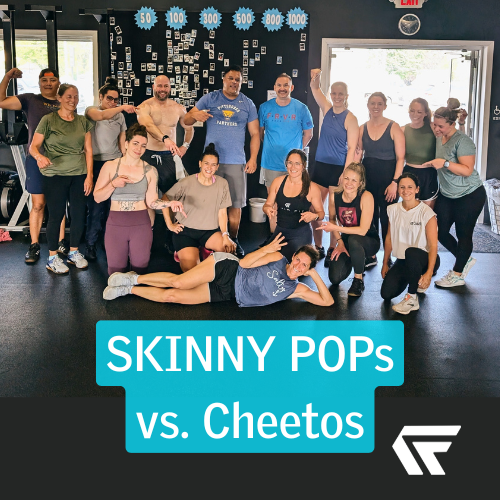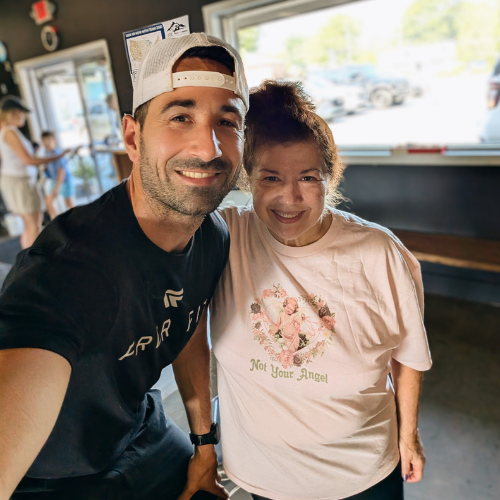What Should I Be Eating After My Workouts
Several weeks ago I wrote about eating BEFORE a workout. This is a follow up focused on after-workout nutrition.
However, if you're just starting out or you're working on building a solid gym routine in the first place, don't get distracted by "the next habit" before you're ready. Your habit priority should be in this order: Gym/fitness routine > Sleep and stress management > Eat unprocessed food > Timing and MACRO plan. If you're just starting out or not sure how to start, reach out here! I would love to connect and explore a plan together.
For those who have the gym and healthy eating nailed down, refueling your body after a workout is just as important as the exercise itself. Post-workout nutrition is essential for muscle recovery, replenishing energy stores, and optimizing performance. Whether you’re hitting the weights, running, or taking a CrossFit class, what you eat after your workout can make a huge difference in how you feel and progress.
Here’s a breakdown of best practices for eating after a workout to help you recover and build strength effectively.
When you exercise, your body burns glycogen (stored energy) and creates tiny tears in your muscles. Post-workout meals and snacks help to:
- Replenish glycogen stores.
- Repair and rebuild muscle with protein.
- Rehydrate and restore electrolytes lost through sweat.
Eating the right nutrients at the right time ensures that your hard work in the gym translates to better strength, endurance, and overall results.
What to Eat After a Workout
Your post-workout meal or snack should ideally include:
- Protein: To rebuild and repair muscle tissue.
- Carbohydrates: To replenish glycogen stores.
- Hydration: To replace fluids and electrolytes lost during exercise.
Timing Your Post-Workout Nutrition
Within 30 Minutes: Quick Fuel
Right after your workout, your body is most receptive to nutrients. This is the "anabolic window," where muscles are primed for recovery.
What to eat:
- A protein shake made with whey or plant-based protein.
- A banana or other fruit paired with a small handful of nuts.
- Chocolate milk (yes, it’s a great mix of protein and carbs!).
These quick-digesting options provide your body with the amino acids and glucose it needs to jump-start recovery. I've made the mistake of eating too much too soon and suffered indigestion. Especially with more intense workouts, you need to allow time for the blood to return to your stomach for digestion. So start small right after a workout and then eat more later on.
1 Hour After: Balanced Recovery
One hour after exercising, focus on a more balanced snack or meal to sustain the recovery process.
What to eat:
- Grilled chicken or tofu with sweet potatoes and steamed vegetables.
- A turkey or egg sandwich on whole-grain bread.
- A bowl of Greek yogurt topped with granola and berries.
Pairing protein and carbohydrates at this stage ensures that you continue to replenish glycogen while supporting muscle repair.
Several Hours After: Sustained Energy
In the hours after your workout, a complete, balanced meal helps keep energy levels steady and supports long-term recovery.
What to eat:
- Salmon or another lean protein with quinoa and roasted vegetables.
- Stir-fried chicken with brown rice and mixed veggies.
- A hearty salad with grilled shrimp, avocado, and a side of whole-grain bread.
Including healthy fats at this point is also important for overall health and hormone production.
Best Practices for Post-Workout Eating
- Hydrate:
Rehydration is crucial. Drink water immediately after your workout and throughout the day. If you had a particularly sweaty session, consider a drink with electrolytes to replenish sodium, potassium, and magnesium. - Listen to Your Body:
Pay attention to hunger cues and adjust your portion sizes as needed. If you’re not hungry right away, start with a small snack and have a meal later. - Avoid Empty Calories:
Sugary snacks or processed junk food may seem tempting, but they won’t give your body the nutrients it needs for recovery. Stick with whole, nutrient-dense foods. - Customize for Your Goals:
If your goal is to build muscle, prioritize protein-rich meals. If you’re focused on endurance or fat loss, adjust your carbohydrate intake accordingly.
Post-workout nutrition isn’t one-size-fits-all, but focusing on a mix of protein, carbohydrates, and hydration will give your body what it needs to recover, rebuild, and perform better over time. Timing is key: grab a quick snack within 30 minutes, eat a balanced meal within an hour, and enjoy a complete meal later in the day. By following these simple practices, you’ll set yourself up for long-term success in your fitness journey.
Ready to optimize your nutrition and fitness routine? Book a No Sweat Intro and let’s create a plan tailored to your goals!







